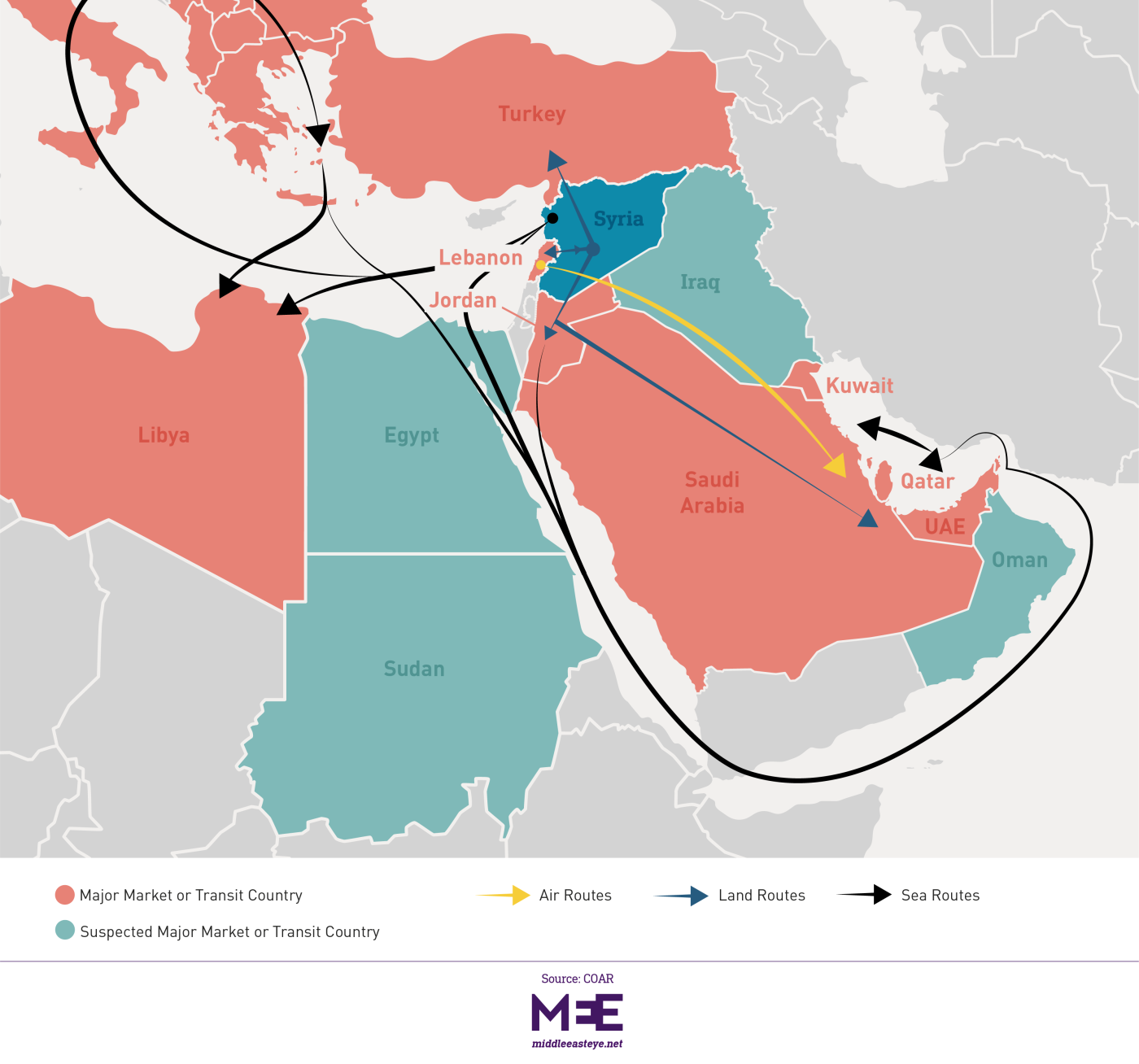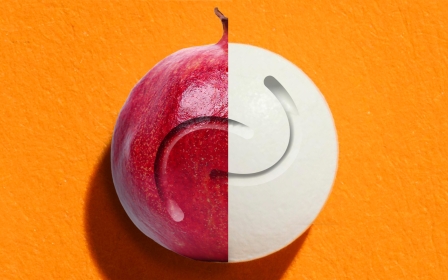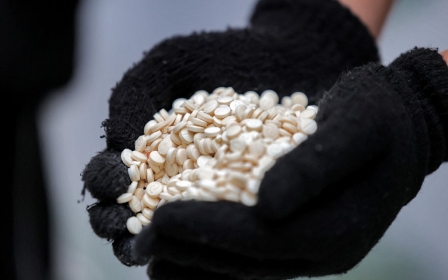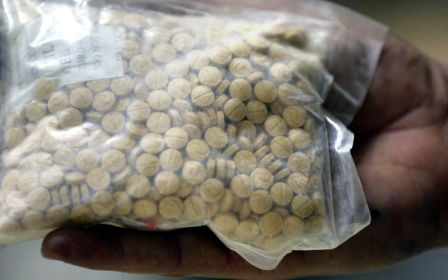Why does the UK think Syria has a $57bn captagon industry?
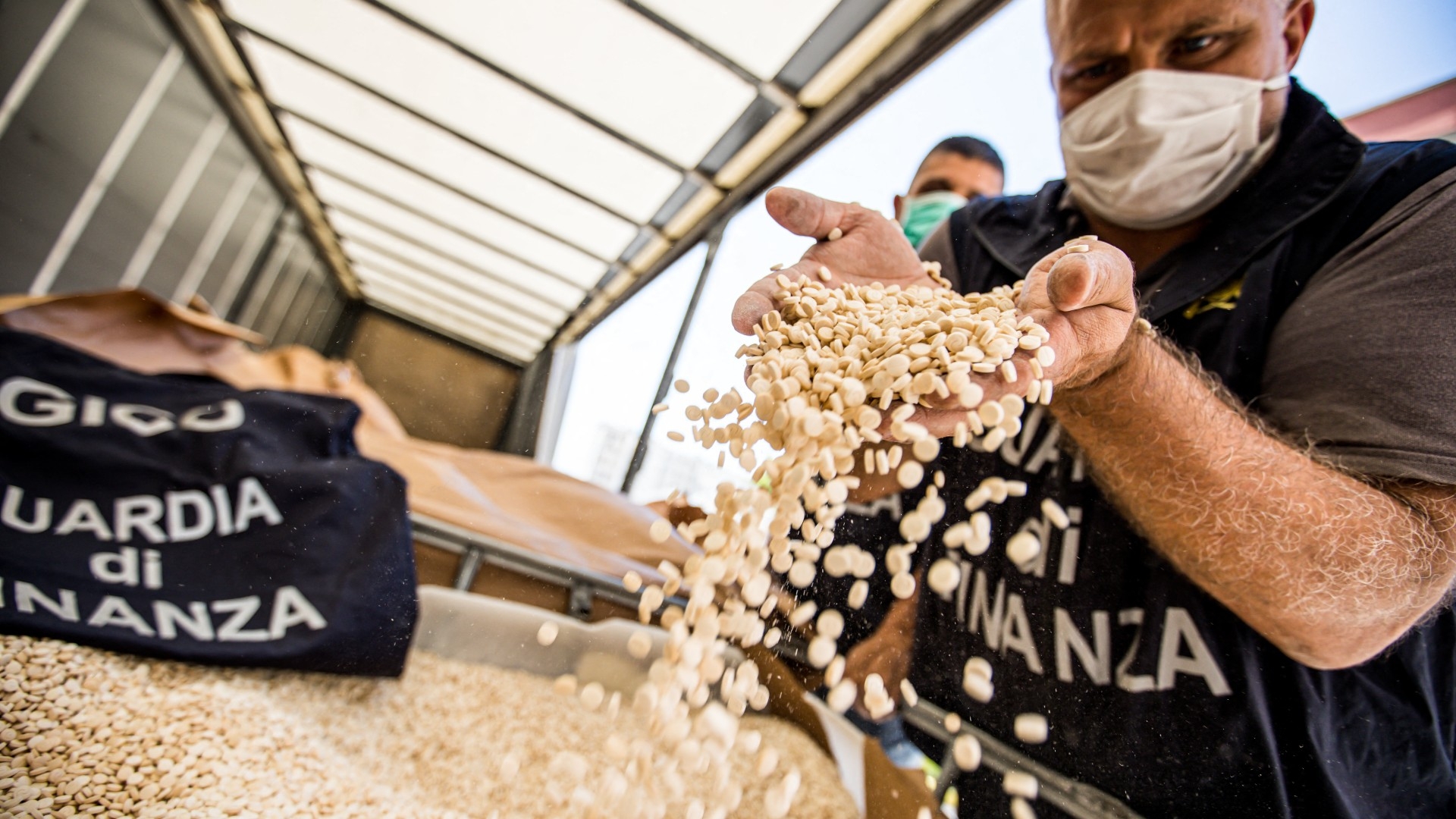
When the United Kingdom announced sanctions on Tuesday against several people in the Middle East accused of trafficking the amphetamine known as captagon the statement took many people by surprise.
Not because of the men targeted, but because the British estimated Syria's captagon trade to be worth $57bn annually.
When the entire GDP of neighbouring Jordan stands at $45bn, it seemed an outlandish number for a war-torn country with a notoriously shattered economy. The figure was subsequently reported without comment by the media, including the Financial Times.
Captagon experts previously estimated the drug to have a retail market of $5.7bn in 2021. Was this latest number a mistaken slip of a decimal point?
New MEE newsletter: Jerusalem Dispatch
Sign up to get the latest insights and analysis on Israel-Palestine, alongside Turkey Unpacked and other MEE newsletters
A source close to the UK Foreign, Commonwealth and Development Office's decision told Middle East Eye that the figure of $57bn was reached through intelligence and "external sources online".
One of those sources, the source said, was Charles Lister, a senior fellow at Washington-based think tank the Middle East Institute (MEI).
On 9 January, Lister published an analysis on MEI's website, saying: "In 2021, authorities across the Middle East and as far afield as Malaysia, Nigeria, and Sudan seized at least $5.7bn of captagon produced and smuggled abroad by Syria’s regime."
"Security officials estimate that seizures of Syrian captagon account for only 5-10 percent of the overall trade, which suggests the total value in 2021 was at least $57bn - or ten times the country’s annual budget," he added.
'I think this puts their credibility on this sanctions action and on Syria more generally in serious question'
– Sam Heller, Syria analyst
But in April last year, the New Lines Institute said it had compiled data that estimated 2021's entire captagon retail market to be worth at least $5.7bn, based on the retail value of annual captagon seizures.
"However, this market estimate is extrapolated from somewhat limited data, solely calculated from reported seizures (mostly large seizures, thus excluding a large number of street-level seizures that go unreported) and the average price per tablet in the region, indicating that the total value of the captagon trade could be much larger," it said.
Lister has previously offered different figures. In October, he said the true scale of Syria's captagon market could stand at $30bn. In December, he tweeted it could be between $55bn and $110bn.
Lister has not responded to MEE's requests for comment.
Sam Heller, a fellow at Century International and a Syria analyst, believes the $57bn figure offered by the UK and Lister is not credible, saying: "the reality of this is so obviously absurd.
"There’s obviously political and media attention on captagon trafficking now," he told MEE, adding that the UK government has made a mistake by publicising what appears to him to be a massively inflated number.
"I think this puts their credibility on this sanctions action and on Syria more generally in serious question."
Captagon is known on the street in the Middle East as Abu Hilalain, named for its distinct two crescents impressed on each pill. It costs a few dollars to produce and sells at almost triple the price.
The stimulant began to be used widely in Syria during the civil war, and the country has become a major exporter to other markets, primarily in the Middle East and particularly Saudi Arabia.
The Foreign Office said that 80 percent of the world’s supply is produced in Syria and shipped from the port of Latakia. Images of captagon shipments being discovered disguised as pomegranates and other goods have gone viral online.
Captagon was a legal drug for almost 25 years. It was developed in West Germany in 1961 and was prescribed for the treatment of depression and for ADHD in children. However, in 1986, the World Health Organization labelled it a controlled substance.
Bulgaria was for a long time a significant producer of the drug, but a crackdown on laboratories forced the production to shift to Syria in the late 1990s and early 2000s.
Now it is believed captagon's production is condoned and facilitated by the Syrian government.
Middle East Eye delivers independent and unrivalled coverage and analysis of the Middle East, North Africa and beyond. To learn more about republishing this content and the associated fees, please fill out this form. More about MEE can be found here.


